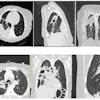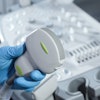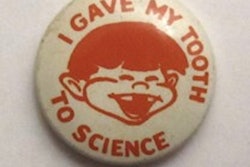
Drinking beetroot juice can lead to higher levels of oral bacteria associated with good vascular and cognitive health, according to a new study in Redox Biology. The researchers also discovered the juice leads to lower levels of bacteria connected with disease and inflammation.
A research team led by Anni Vanhatalo, PhD, from the University of Exeter in the U.K. compared the effects of drinking nitrate-rich beetroot juice with a placebo in 26 healthy adults ages 70 to 80. The subjects drank the juice twice a day for 10 days (Redox Biol, May 2021, Vol. 41, 101933).
"Our findings suggest that adding nitrate-rich foods to the diet -- in this case via beetroot juice -- for just 10 days can substantially alter the oral microbiome for the better," stated Vanhatalo, a professor of human physiology, in a university press release.
Beetroot and other foods such as lettuce, spinach, and celery are rich in inorganic nitrate, which oral bacteria turn to nitric oxide. Nitric oxide helps regulate blood vessels and neurotransmission.
"Previous studies have compared the oral bacteria of young and older people, and healthy people compared to those with diseases, but ours is the first to test nitrate-rich diet in this way," Vanhatalo stated.
The researchers ran tests to identify modules of oral bacteria that tend to thrive together in similar conditions. Prevotella-Veillonella -- associated with inflammation -- was reduced after nitrate supplementation along with Clostridium difficile, which can infect the bowel and cause diarrhea.
Vanhatalo and her team also found systolic blood pressure dropped on average by five points (millimeters of mercury [mmHg]) after drinking the beetroot juice. The findings have important implications for healthy aging, Vanhaltalo said.
"Maintaining this healthy oral microbiome in the long term might slow down the negative vascular and cognitive changes associated with aging," she stated.
More research is needed to confirm the findings as the study participants were healthy, active older people with generally good blood pressure, the authors noted. It also remains to be seen what would happen in other age groups and those with poorer health.
"We are working with colleagues in the University of Exeter Medical School to investigate interactions between the oral bacteria and cognition to better understand how diet could be used to delay cognitive decline in older age," Vanhatalo stated.



















